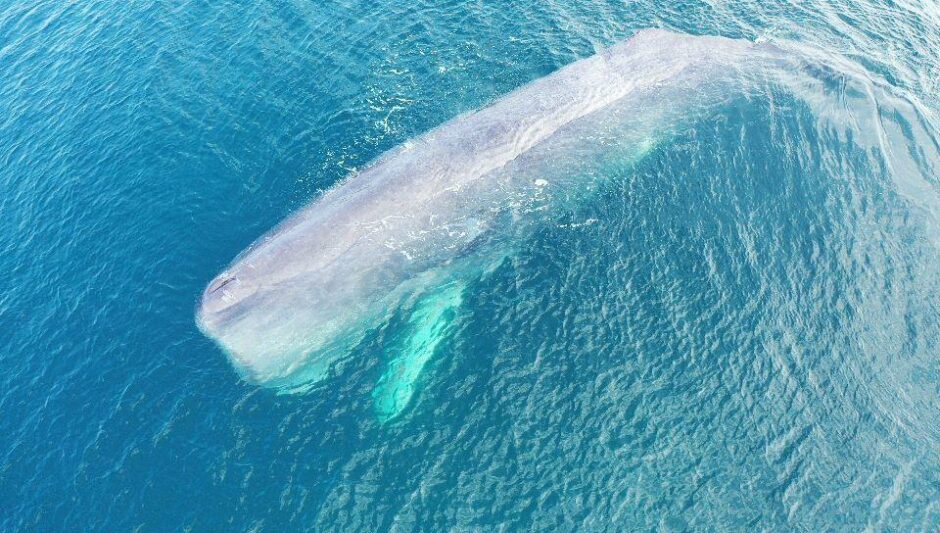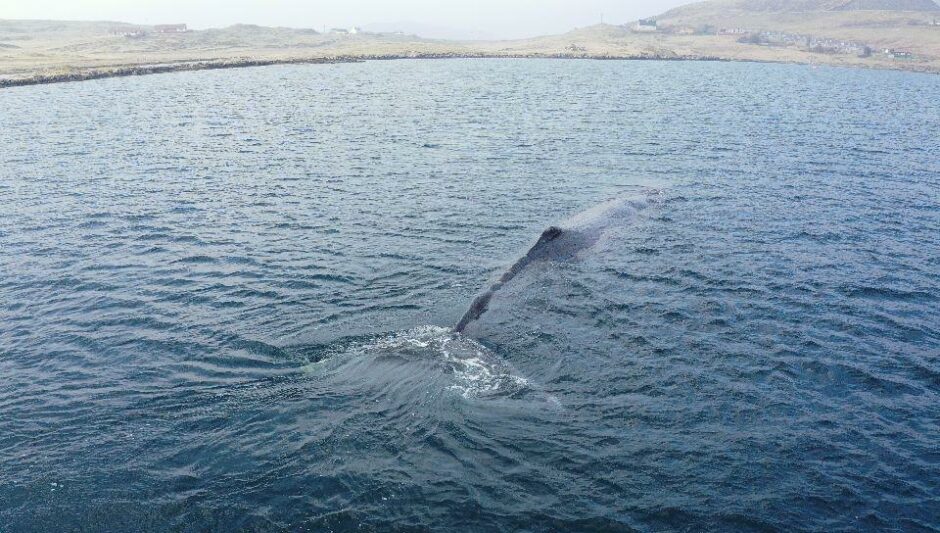Police in Shetland have warned the public to stay away from a sperm whale that has been in the area for three days now.
The sperm whale was first spotted near to shore in the area of Whiteness on Tuesday, March 22.
At around 2.30pm later that day, it became stranded on the seabed.
Still in the water, the whale managed to refloat itself but has been seen stranded many times close to shore over the past few days.
‘It is not looking good’
A mature male whale averages about 50ft in length and weighs about 40 tonnes. They are deep water species as that is where they feed. Having been in shallow waters for the last few days means that the sperm whale in Whiteness probably has not eaten for quite a while.
The British Divers Marine Life Rescue has said they are monitoring the situation and have volunteers on the island but the whale is “not looking good”.
If the whale does eventually become stranded on the beach however, they said there is nothing that can be done.
A spokeswoman from the organisation said: “The problem with sperm whales is that they are huge. You can’t move them, you can’t refloat, there’s very little you can do apart from monitor what is happening with them.
“Either they refloat themselves on the incoming tide or they don’t. They do beach and they do die.
“They’re such a big mammal most of it’s under the water. It’s hard to tell the condition of them but just from what we know about sperm whales, the condition isn’t going to be great.
“The reason to keep people away from it is more for human safety. If it is alive, it’s probably still quite strong in terms of what it could do to a human. But also there’s nothing really that you can do to help so there’s no reason to be going near an animal like this.”
‘It’s really now a waiting game’
Karen Hall, marine mammal advisor for Nature Scot, said that the Shetland sperm whale was first spotted on Monday and it was behaving normally.
The next day however, it became stranded for the first time and moved into a more enclosed area on Wednesday.
When this has happened in the past, Ms Hall said it “doesn’t normally bode well” for the whale.
She said: “It’s really now a waiting game. It’s frustrating because everyone is willing it to move out.”
It is not known why the whale has come inshore. Some theories suggested are that it could be caused by underwater noise, recent earthquake activity or underlying health conditions.
On social media, Ms Hall said: “Unfortunately with a whale this size, combined with the location that its in, there are just no options available to move it out of the voe.
“As frustrating as it is not to do something, anything we did do could end up making matters worse or injuring the animal. We are hoping, like everyone else, that it somehow finds its way back out to sea.
“Thank you to everyone who has taken the time to provide updates, footage and behavioural information – this has been invaluable in helping to understand what is going on and has been shared with relevant experts.”

